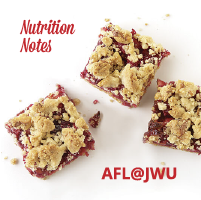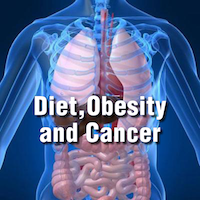
June 3, 2019 | News, Smith News
February 25, 2019 –Emily started gaining weight when she was in her 30’s, after having two kids and dealing with a stressful job. Her weight gain led to increased blood pressure and higher cholesterol levels. When she visited her doctor, the doctor advised that she change her diet to help her lose weight and improve her cardiovascular health. Emily knew following a diet was difficult, and it took a few false starts for her to follow one consistently.

June 1, 2019 | Cheatham News, News
February 11, 2019 – That Carol L. Cheatham, PhD was a scientist was clear to her family early on. At the age of 8 growing up on a farm in rural Wyoming, Cheatham conducted observational studies following the many farm cats around to find out (and diligently record in her notebook) where they would give birth. Once that got boring, she started trying to predict where the litters would be born based on her observations from the previous years.

May 26, 2019 | News, Smith News
December 16, 2018 – If you’ve ever been around a pregnant woman, you’ve probably heard her mention something about food cravings. Or she’s mentioned that she won’t drink coffee or eat Oreos because they are “bad for the baby.” Food is a hot topic during pregnancy because of how it can drastically affect the developing baby. But how many times have you heard a woman mention that she is eating healthier because she is going to try to get pregnant?

May 18, 2019 | News, Recipes
October 17, 2018 – The science on food and nutrients and their relationship to health is complex. Individuals are unique and there are various factors that influence health outcomes. Researchers at the UNC Nutrition Research Institute (NRI) are working very hard to understand the intricacies of diet and nutrients, and their relationship to disease prevention and progression with the goal that general dietary guidance will be replaced with personalized nutrition recommendations.

April 23, 2018 | Hursting News, News
April 26, 2018 -About one third of cancer cases are estimated to be linked to dietary and other modifiable risk factors, especially for obesity-related cancers such as breast, colorectal, ovarian, endometrial, kidney, gallbladder, esophageal, and pancreatic cancers. In this special theme issue of the Journal of the Academy of Nutrition and Dietetics, food and nutrition practitioners and other health professionals take an in-depth look at the relationship between nutrition, obesity, and cancer prevention, treatment, and survival and identify research gaps for future prevention research efforts.
March 30, 2018 | soundbite-enews
Gut and Microbiome Study March 28, 2018 – At the NRI, we are conducting pioneering research on the interplay of diet and the gut microbiome in human health. The gut microbiome is a complex community of microorganisms living in our lower intestine; although we have...

February 28, 2018 | News, Voruganti News
February 28, 2018 – Childhood obesity may no longer be a new concept, but the prevalence is higher than ever, and statistics show that Cabarrus County sits above the national and state averages for kids who are dangerously overweight.
An ongoing study at the N.C. Research Campus in Kannapolis hopes to take a dive into children’s health and nutrition and what might lead some to gain excess weight and others not to. The children’s health study is currently looking for children and their families to participate.






